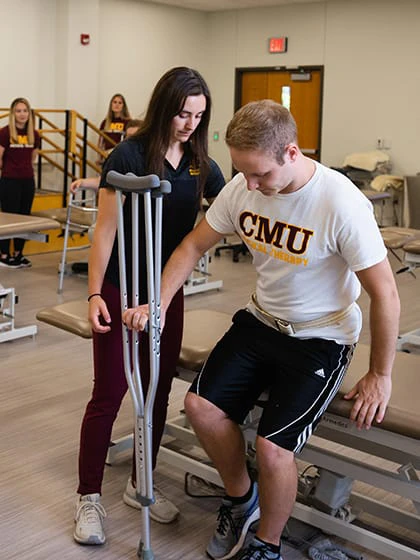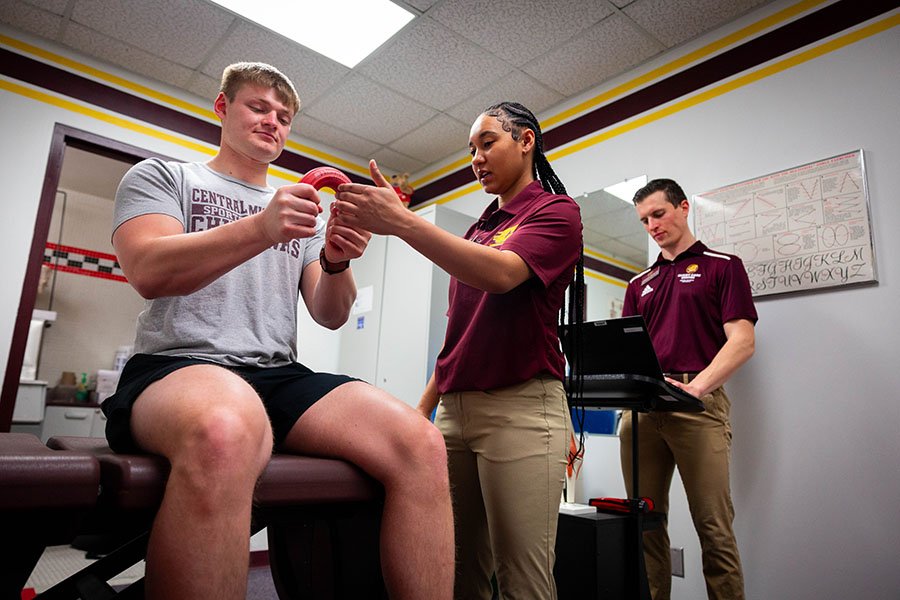


Pre-Occupational Therapy
Pre-occupational therapy program
Occupational therapists work with people to improve their ability to perform everyday activities from getting dressed in the morning to pursuing their favorite hobbies. Whether it’s helping a student who struggles in the classroom or aiding someone recovering from surgery, occupational therapists create personalized plans to empower people and help them regain independence. It’s more than just therapy—it’s about changing lives.
Our pre-occupational therapy program is your first step toward the advanced degree you’ll need to become a practicing occupational therapist.
Program Snapshot
Why should I choose a pre-occupational therapy program?
To become a licensed occupational therapist, you need at least a master’s degree from an occupational therapy school. Some people continue with their studies and become a Doctor of Occupational Therapy. In either case, you start by completing a bachelor’s degree.
When you join our pre-occupational therapy program, we help you pick a related bachelor’s degree that will complete two important steps toward your career:
- You’ll earn your bachelor’s degree in a related field that gives you a solid foundation of knowledge before you start your master’s degree.
- You’ll work with your advisor to tailor your bachelor’s degree to make sure you take the classes you’ll need to meet the requirements for admission to your occupational therapy master’s program, saving you time and money.
Most students choose a bachelor’s degree that is closely aligned with occupational therapy such as:
Why our pre OT pathway?
Our pre-occupational therapy pathway will prepare you to be a competitive applicant for OT school and a successful career after. Program highlights include:
- Support every step of the way: Advisors and mentors will help you choose your courses to match the prerequisites of your master’s program in occupational therapy.
- Core coursework: Incudes biology, chemistry, physics, anatomy, physiology, psychology and sociology. You’ll also have the opportunity to take elective courses in occupational therapy theory, research methods and clinical practice.
- Extracurricular activities: These will help you develop your skills and knowledge of OT. Activities may include shadowing practicing OTs, volunteering at rehabilitation centers or hospitals and participating in research projects.
- Help preparing for the Occupational Therapy Admissions Test (OAT): Mentors and advisors offer assistance in preparing for required admissions tests and applying to your OT school of choice.
- Live among fellow pre-health students: You'll have the option to join your peers in a living-learning community right on campus. You'll build professional connections and personal ones to support you on your journey.

Still not sure what a pre-professional program is?
We have a blog to help you understand the benefits of the pre-occupational therapy program. It outlines why you need a pre-professional program and how it is designed to set you up for success in graduate school.
Request Information about CMU
By submitting this form, I agree to receive calls, emails and/or text messages from Central Michigan University to discuss furthering my education.